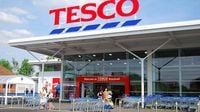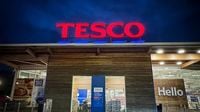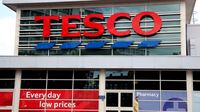Tesco has issued an urgent recall of a popular Swiss cheese product due to fears of contamination with listeria monocytogenes, a potentially deadly bacterium. The affected product is the 150g Le Superbe Raclette cheese, which is produced by Castelli UK Ltd. The recall specifically targets packs with a best before date of May 12, 2025.
The Food Standards Agency (FSA) has alerted customers to the risks associated with this bacteria, which can cause listeriosis, a form of food poisoning that poses serious health threats, particularly to vulnerable populations. Pregnant women, newborn babies, individuals over 65, and those with weakened immune systems are at greater risk of severe complications from listeriosis, which can lead to symptoms ranging from mild flu-like signs to severe conditions such as meningitis.
Symptoms of listeriosis include fever, muscle pain, chills, nausea, vomiting, and diarrhea. In rare cases, the infection can escalate to severe complications, including septicemia and meningitis, which can be life-threatening. The mortality rate for invasive listeriosis is alarmingly high, estimated between 20% and 30%, according to the World Health Organization.
The FSA has advised anyone who has purchased the affected cheese not to consume it. Instead, they should return it to the store for a full refund, with no receipt required for the return. Tesco has placed warning notices in its stores to alert customers to the recall and ensure they are aware of the potential health risks.
In addition to the cheese recall, the FSA has also recently announced other food product recalls. On May 8, 2025, La Famiglia Rana recalled a ready-made lasagne after it was discovered that some packages contained lobster instead of beef due to a packaging error. Earlier in May, a pasta sauce by Organico Realfoods was recalled over fears it might contain shards of glass, and Morrisons recalled its own-brand sausages for containing small pieces of blue plastic.
This latest cheese recall has raised significant concerns, especially considering the history of listeria-related food safety issues in the UK. Last year, several products, including mousses, ice creams, and yoghurts, were pulled from shelves after being linked to listeria contamination that resulted in the deaths of three individuals in NHS hospitals. The UK Health Security Agency (UKHSA) reported that listeriosis cases rose by nearly a fifth in 2024 compared to pre-pandemic levels, highlighting the ongoing risks associated with this bacteria.
For those who may be unfamiliar with listeriosis, it is important to understand that while many people experience only mild symptoms, certain groups face a higher risk of serious illness. Pregnant women are particularly vulnerable, as listeriosis can lead to miscarriage or stillbirth. Newborns and individuals with compromised immune systems are also at risk of severe outcomes, such as sepsis or meningitis.
The FSA has emphasized the importance of food safety and vigilance, particularly regarding ready-to-eat foods that are more likely to harbor listeria. Foods such as soft cheeses, pre-cooked meats, and chilled ready-to-eat meals are often associated with listeria outbreaks. Consumers are encouraged to keep their refrigerators at 5°C or below, consume ready-to-eat foods within four hours of removal from refrigeration, and follow all food safety guidelines provided on packaging.
As the situation develops, Tesco customers are urged to stay informed about food safety recalls and to take immediate action if they have purchased the affected cheese. The FSA has provided a contact number, 01732 835446, for consumers seeking more information about the recall.
In summary, the urgent recall of Le Superbe Raclette cheese underscores the need for ongoing vigilance in food safety practices. With listeriosis posing serious health risks, particularly to vulnerable populations, it is crucial for consumers to heed warnings and ensure that they are not consuming potentially contaminated products.



